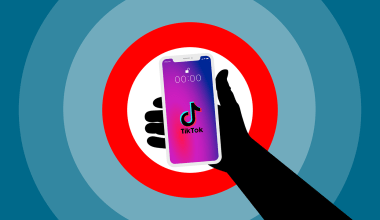Music distribution is an exciting career path for those passionate about connecting artists with listeners. With the rise of streaming platforms and independent music, the demand for skilled music distributors has grown significantly. If you’ve ever wondered how to become a music distributor, this guide will walk you through the process in simple, clear steps. Whether you want to work for a large distribution company or start your own venture, understanding the industry and building the right skills is key.
Understanding Music Distribution
Before diving in, it’s essential to know what music distribution entails. Music distributors act as the bridge between artists and their audience. Their role is to get music from the creators to the platforms where fans can listen, such as Spotify, Apple Music, YouTube, and even physical stores. Some distributors also handle marketing, licensing, and royalties. The better you understand this role, the more successful you can be.
The Skills You Need
Becoming a music distributor isn’t just about having a passion for music. You’ll need a combination of business acumen, marketing expertise, and technical skills. Here are some skills to focus on:
- Networking: Building relationships with artists, record labels, and streaming platforms is crucial.
- Marketing: Understanding how to promote music effectively is a huge advantage.
- Organization: Managing multiple projects and deadlines requires strong organizational skills.
- Tech Savvy: Familiarity with music platforms and distribution software is essential.
If you’re missing any of these skills, don’t worry. Many can be learned through online courses or hands-on experience.
Step 1: Research the Industry
Start by immersing yourself in the world of music distribution. Learn about the top players in the field, such as DistroKid, TuneCore, and CD Baby. Study how these companies operate and what services they offer. Understanding their business models will give you insights into what works and how you can stand out.
Step 2: Choose Your Niche
The music industry is vast, and focusing on a specific niche can help you build a strong reputation. For example, you could specialize in indie artists, electronic music, or even regional genres. By narrowing your focus, you’ll be able to tailor your services to meet the unique needs of your target audience.
Step 3: Build Your Network
Networking is a cornerstone of becoming a successful music distributor. Attend industry events, join online communities, and reach out to artists and producers. Building genuine relationships with people in the music scene can open doors to new opportunities. Social media platforms like LinkedIn, Instagram, and Twitter are excellent for connecting with potential clients and collaborators.
Step 4: Get the Right Tools
To distribute music effectively, you’ll need access to the right tools and platforms. Here are some essential resources:
- Distribution Platforms: Platforms like DistroKid or TuneCore allow you to upload and manage music releases.
- Analytics Tools: Understanding listener data is crucial for optimizing distribution strategies.
- Music Licensing Services: If you plan to handle licensing, tools like Songtrust can be invaluable.
Investing in these tools can streamline your workflow and help you deliver professional results.
Step 5: Learn About Royalties
Royalties are a critical aspect of music distribution. As a distributor, you’ll need to ensure that artists receive their fair share of earnings. Familiarize yourself with terms like mechanical royalties, performance royalties, and synchronization fees. Many distributors use automated systems to track and distribute royalties, but a solid understanding will help you communicate effectively with artists and labels.
Step 6: Create a Business Plan
If you’re serious about becoming a music distributor, a business plan is essential. Outline your goals, target audience, pricing structure, and marketing strategy. This plan will not only guide your actions but also help you secure funding if needed. Keep your plan flexible, as the music industry is constantly evolving.
Step 7: Start Small
When you’re just starting out, focus on a few artists or releases to gain experience. This approach allows you to refine your processes and build a portfolio. As you gain confidence and establish a reputation, you can expand your client base and take on larger projects.
Step 8: Stay Updated
The music industry moves quickly, and staying informed is crucial. Subscribe to industry newsletters, follow trends, and participate in webinars. By staying ahead of the curve, you’ll be better equipped to adapt to changes and offer valuable services to your clients.
Challenges to Expect
Becoming a music distributor isn’t without its challenges. You may face competition from established companies or struggle to attract clients initially. It’s important to stay persistent and focus on delivering value. Building trust and credibility takes time, but the rewards are worth it.
Tips for Success
- Be Transparent: Artists appreciate honesty and clear communication.
- Offer Value: Go beyond basic distribution by offering marketing or consulting services.
- Focus on Quality: Always prioritize the quality of your work.
Conclusion
Becoming a music distributor is an exciting journey filled with opportunities. By learning the ropes, building strong relationships, and staying committed, you can carve out a successful career in this dynamic industry. Remember, every successful distributor started somewhere, and with the right mindset and effort, you can achieve your goals too.
For further reading, explore these related articles:
- Taylor Swift Spotify Streams: How She Became the Queen of Streaming
- Mo Bamba Lyrics: The Story of a Song That Took the World by Storm
For additional resources on music marketing and distribution, visit DMT Records Pvt. Ltd..






